
News - Page 6
The CONSERVE 2021 Statement for reporting changes in studies
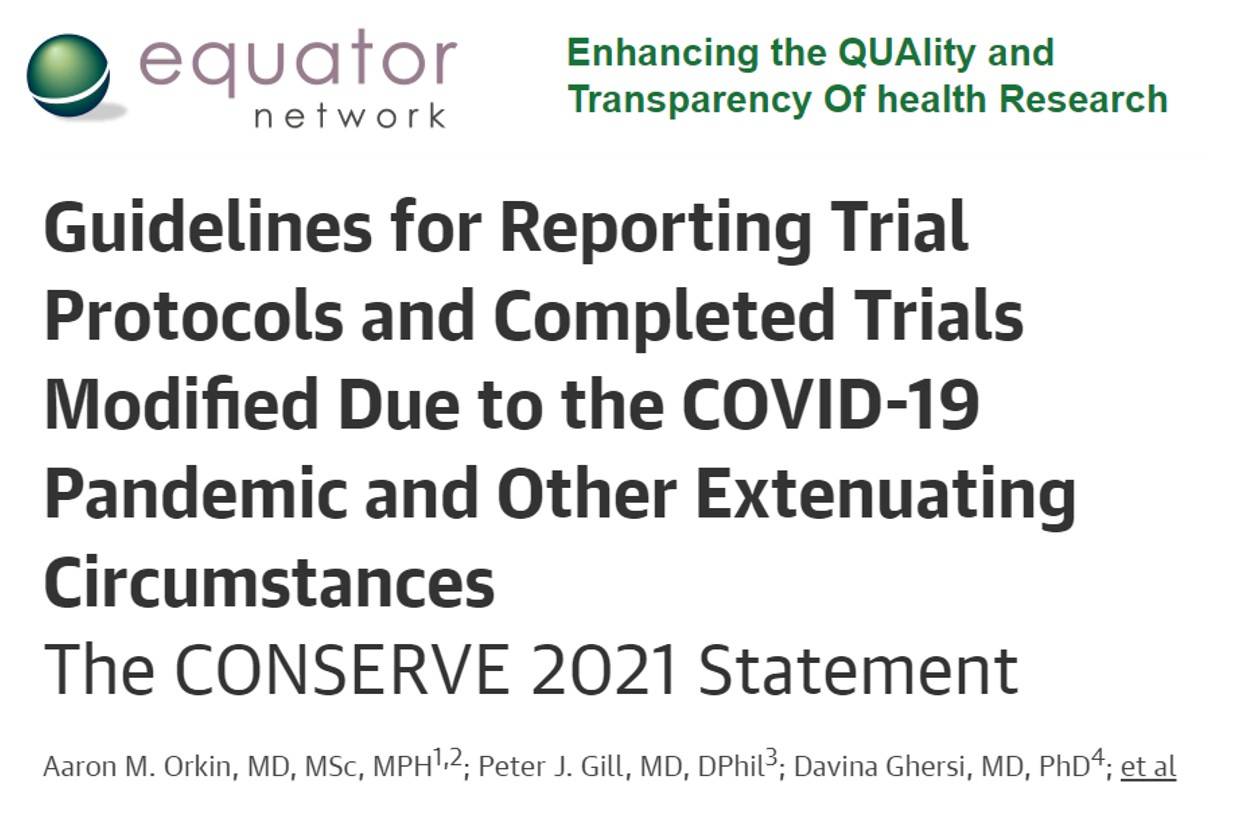
September 7, 2021
A clinical study may undergo important modifications in response to extenuating circumstances such as the COVID-19 pandemic. The CONSERVE* 2021 Statement offers guidance for writing clinical study reports (CSRs) and clinical study protocols (CSPs) related to studies that undergo modifications that:
Read moreFirst International Neonatal Screening Day
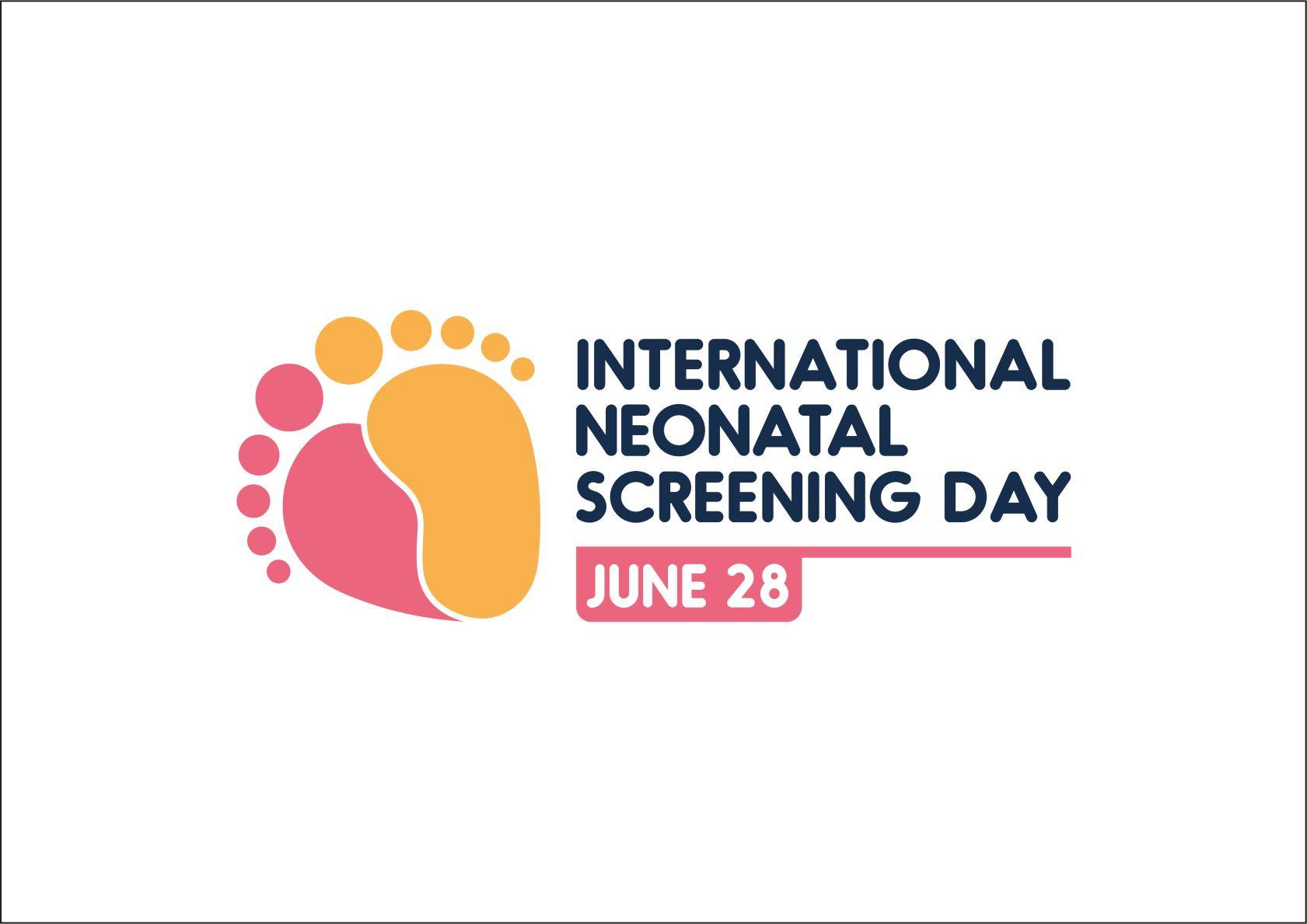
June 28, 2021
Neonatal screening, also called newborn screening (NBS), allows the early detection and clinical management of newborns with a range of health conditions.
The date for this international NBS day was chosen in honor of Dr. Robert Guthrie, whose birthday is June 28th. In the United States in the 1960s, Dr Guthrie developed the first NBS test for phenylketonuria (PKU), using a drop of blood collected on blotting paper. This blotting paper technique is still used today in all NBS programs. The blood sample is usually collected in the first 3 days of life from the newborn’s heel, or sometimes from their hand.
Technological advances now allow the screening of up to 50 disorders from just a few dried blood spots! Most of these are congenital metabolic disorders and endocrine disorders.
Read moreWorld Microbiome Day

June 24, 2021
June the 27th is World Microbiome Day. This yearly event aims to raise awareness of the diversity of human, animal and environmental microbiomes, and of their effects on health.
Our medical writers at Santé Active Edition – Synergy Pharm have participated in the writing of several scientific articles and reviews on the skin and intestinal microbiomes, highlighting their vital importance for human health, most notably in acne, atopic dermatitis, rosacea, wound healing, and in intestinal disorders. In addition, microbiomes in the environment play a fundamental role in maintaining the balance needed for healthy ecosystems.
The Jungle on the Skin: Cutaneous Microbiome. Am J Clin Dermatol 2020; 21 (Suppl 1):1-50.
MedComms Day
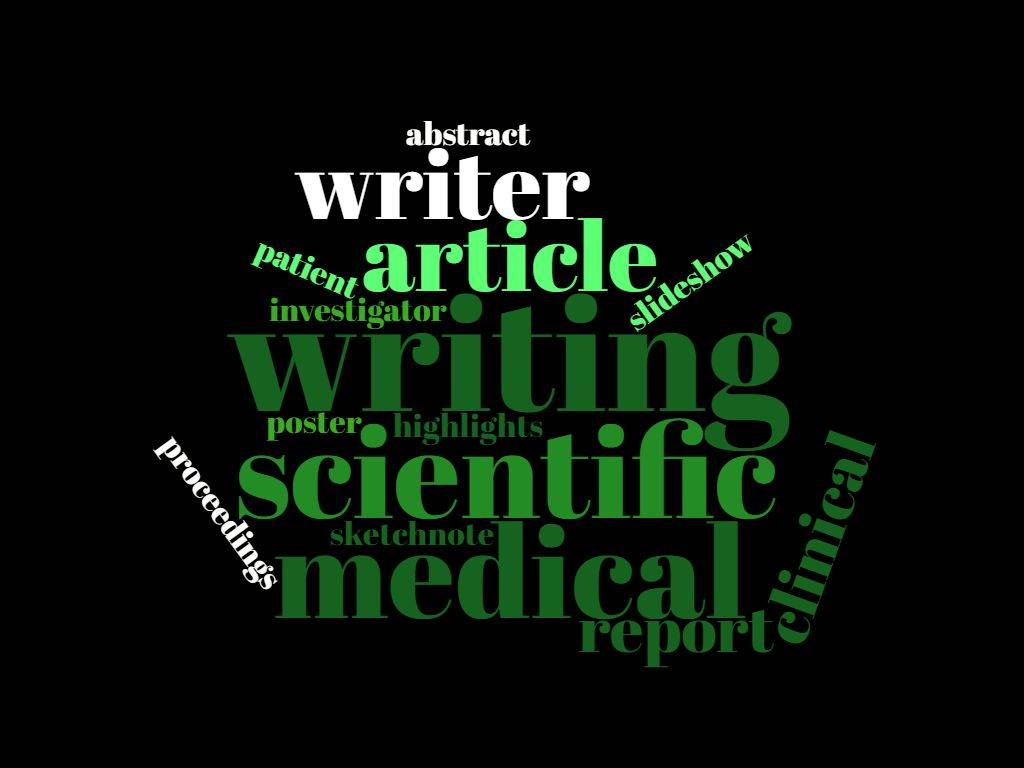
June 9, 2021
Today is MedComms Day! We would like to take this opportunity to tell you about our core business activity: medical and scientific writing.
Our medical communication agency has been serving the pharmaceutical and cosmetics industries, biotech companies, manufacturers of medical devices, healthcare professionals, and the wider scientific research community for more than 30 years. How? Medical communication, and particularly the writing of regulatory and clinical documentation related to the development of drugs and other healthcare products, is an integral part of these sectors.
Many documents are needed during the development and “lifespan” of a drug, from the pre-clinical research phase to marketing and beyond. Regulatory medical writing helps industry meet this demand.
- Setting up a clinical study requires the submission of a Clinical Trial Authorization (CTA) application to the health regulatory authorities. Many documents need to be written for this application: an Investigational Medicine Product Dossier (IMPD), an investigator’s brochure, a synopsis and a clinical trial protocol, an informed consent form (ICF), etc. In addition, a Clinical Study Report (CSR) needs to be written after each trial phase to communicate the results to the regulatory authorities, and a lay summary must also be published in the European database of clinical studies.
- Preparing a drug Marketing Authorization Application (MAA) also requires specific skills, involving the writing of a Common Technical Document (CTD, clinical and nonclinical), and a Pediatric Investigation Plan (PIP), if applicable. After submitting the MAA dossier, national (e.g., the French Agency for the Safety of Medicines and Health Products, ANSM) or international (European Medicines Agency [EMA], Food Drug Administration [FDA]) health agencies usually require detailed responses to answer specific questions about the drug being assessed.
- Pharmacovigilance documents (e.g., Periodic Safety Update Reports [PSURs], Development Safety Update Reports [DSURs] are also essential documents that need to be written at various points during the “lifespan” of a drug.
Publishing the results of experimental, nonclinical, and clinical studies in peer-reviewed journals is essential for enabling researchers to share their findings with the scientific community, and thus move science forward. Scientific article writing is the first step in this process. The scientific paper is then submitted for peer review. As scientific writing is subject to specific rules and the selection criteria of peer-reviewed journals are very strict, many authors also hire a medical writer to proofread or rewrite their scientific paper before submission to increase the chance of their article being accepted for publication in their target journal. In some cases, authors feel uncomfortable writing in English and use our medical article translation or language editing services before submission of their article to an international journal.
Medical communication is also required for conferences and meetings: an abstract of the study must be submitted, and then a poster or a slide show have to be created to present the results. For after the event, some companies or associations ask us to produce a conference report intended for participants who were unable to attend. Conference reports can be produced in several formats, e.g., as conference proceedings, scientific articles, or summary slideshows. Medical writers can also write, create, and produce all these documents!
The general public also have a need for a range of documents intended for them, such as the lay summaries of clinical trials mentioned above, website content dedicated to patients, medical brochures, leaflets, scientific sketchnotes (a of mix short texts and drawings), etc.
Our team is passionate about scientific and medical writing: our profession is diverse and enriching with many various missions on many various themes!
World No Tobacco Day
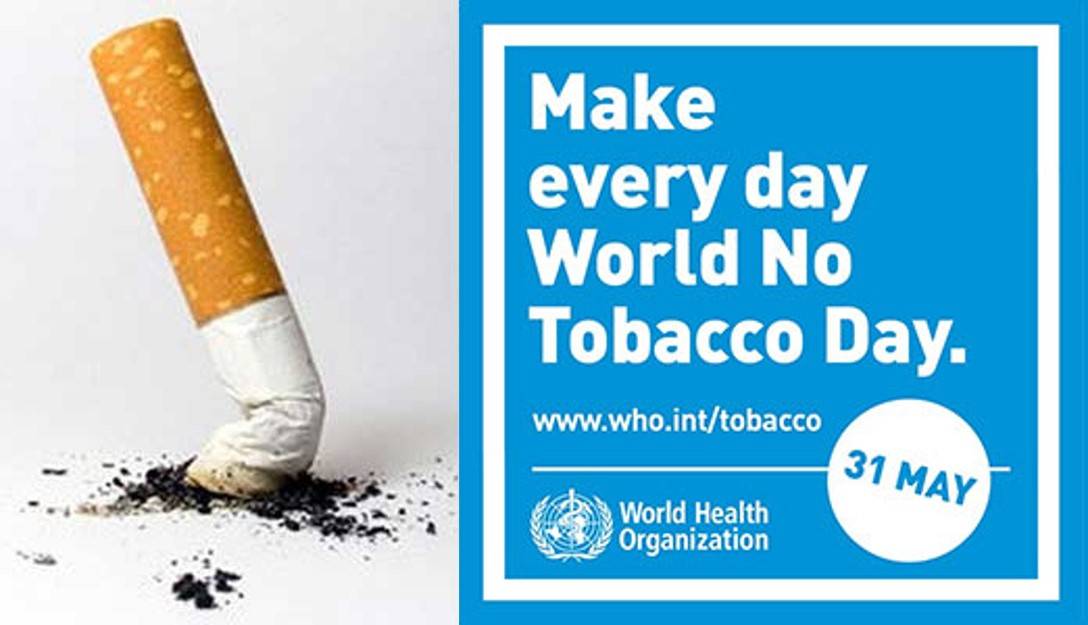
May 31, 2021
Did you know that tobacco is the main risk factor for bladder cancer?
In 75% of cases, bladder cancer is non-invasive but 5-year progression (0.8% – 45%) and recurrence (31% – 78%) rates are high. Patients with this type of cancer must therefore undergo regular examinations to enable early treatment.
Several urinary tests have been developed to overcome the drawbacks of reference examination methods; in particular the invasive nature of cystoscopy, and the problems of sensitivity and of intra- and inter-observer reproducibility associated with cytology.
The results of a recent study support the use of the Xpert Bladder Cancer Monitor test developed by Cepheid for the monitoring of these patients in clinical practice. We would like to thank Géraldine Cancel-Tassin, Morgan Rouprêt, Ugo Pinar, Cécile Gaffory, Félicien Vanié, Valérie Ondet, Eva Compérat, Olivier Cussenot, Myriam Livrozet, and Laura Fabre for entrusting our medical writing team with writing and English editing of this article!
Fight against Malaria
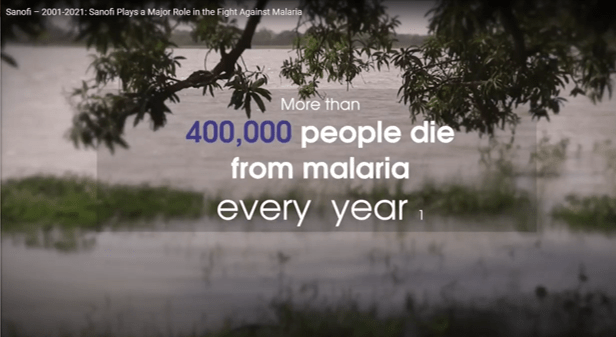
April 27, 2021
Malaria is caused by Plasmodium parasites. Among the 5 disease-causing parasite species, Plasmodium (P.) falciparum and P. vivax are the most widespread. They are transmitted to people through the bites of infected female Anopheles mosquitoes.
According to the World Health Organization (WHO), nearly half of the world’s population was at risk of malaria in 2019. P. falciparum parasites are responsible for most malaria cases in the WHO African region, whereas P. vivax parasites are responsible for most cases in the WHO Region of the Americas.
Over the past 70 years, Sanofi has produced several antimalarial drugs against P. falciparum and P. vivax parasites. In addition, Sanofi has developed a malaria awareness program for school-age children: children may suffer from malaria-induced anemia, a condition which has an impact on their school attendance and cognitive development. These educational tools teach children how to identify and clear the mosquito proliferation sites in their environment. Children can also learn about the clinical symptoms of malaria and the actions to take in case of illness. Education is a key fator in helping to change the health behaviors of these adults of tomorrow, and consequently those of future generations.
Synergy Pharm is proud of providing Sanofi with medical writing support over several years for their various malaria projects, including regulatory and clinical documentation, Common Technical Documents (CTDs) for Marketing Authorization Applications (MAAs), and scientific articles.
Medical articles, preprints, and peer review
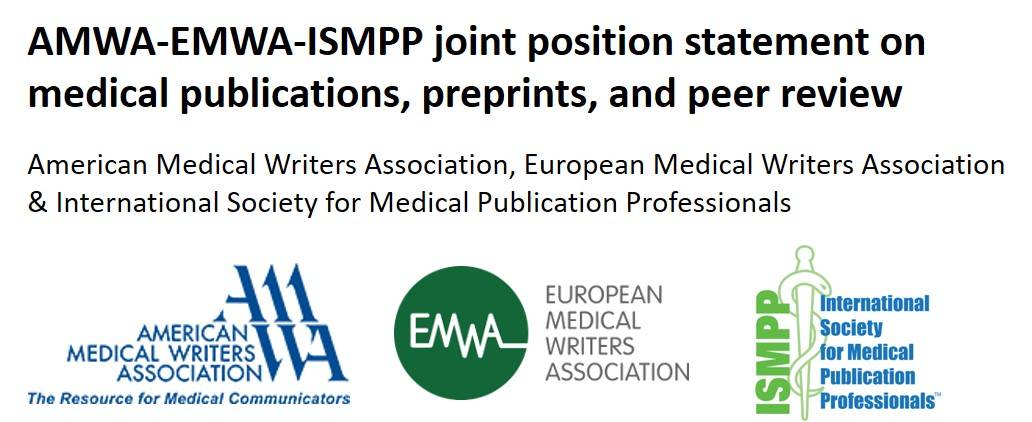
April 15, 2021
This joint position statement from the AMWA-EMWA-ISMPP, a multi-party consortium of three eminent professional organizations for medical communication professionals, including medical writers advises against the use of preprints and post-publication peer review articles as references in any medical publication unless they are cited as a personal communication (i.e., as an in-text reference).
This statement serves as a reminder that by adhering to the guidelines set out by these organizations professional medical writers enhance publication quality and speed.
More than 150 articles written by Santé Active Edition – Synergy Pharm have been published in major international journals.
Updated PRISMA guidelines

March 30, 2021
The PRISMA 2020 statement has just been published!
This new statement provides an update to the PRISMA 2009 guidelines for reporting systematic reviews and meta-analyses.
You can download the new checklist template and the new flow diagram templates at http://www.prisma-statement.org/.
Every medical writer at Santé Active Édition – Synergy Pharm pays particular attention to keeping informed of new medical writing recommendations, including those concerning medical and scientific article writing.
Our Contributions to Publications on Memory
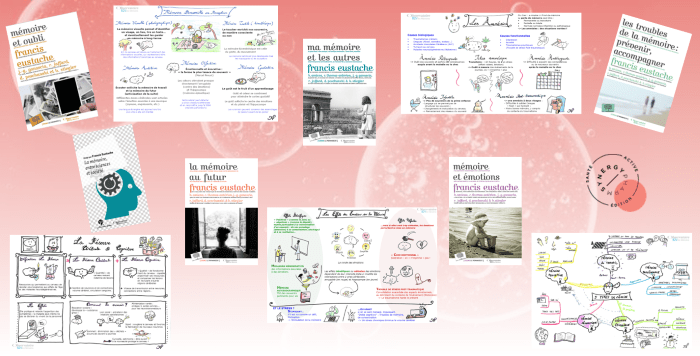
March 15, 2021
On the occasion of Brain Awareness Week (BAW), (re) discover the French sketchnotes and multidisciplinary books on this theme, produced by Françoise Nourrit-Poirette, a medical writer from our team, for the “Observatoire B2V des Mémoires” (B2V Memory Observatory).
Brain Awareness Week 2021
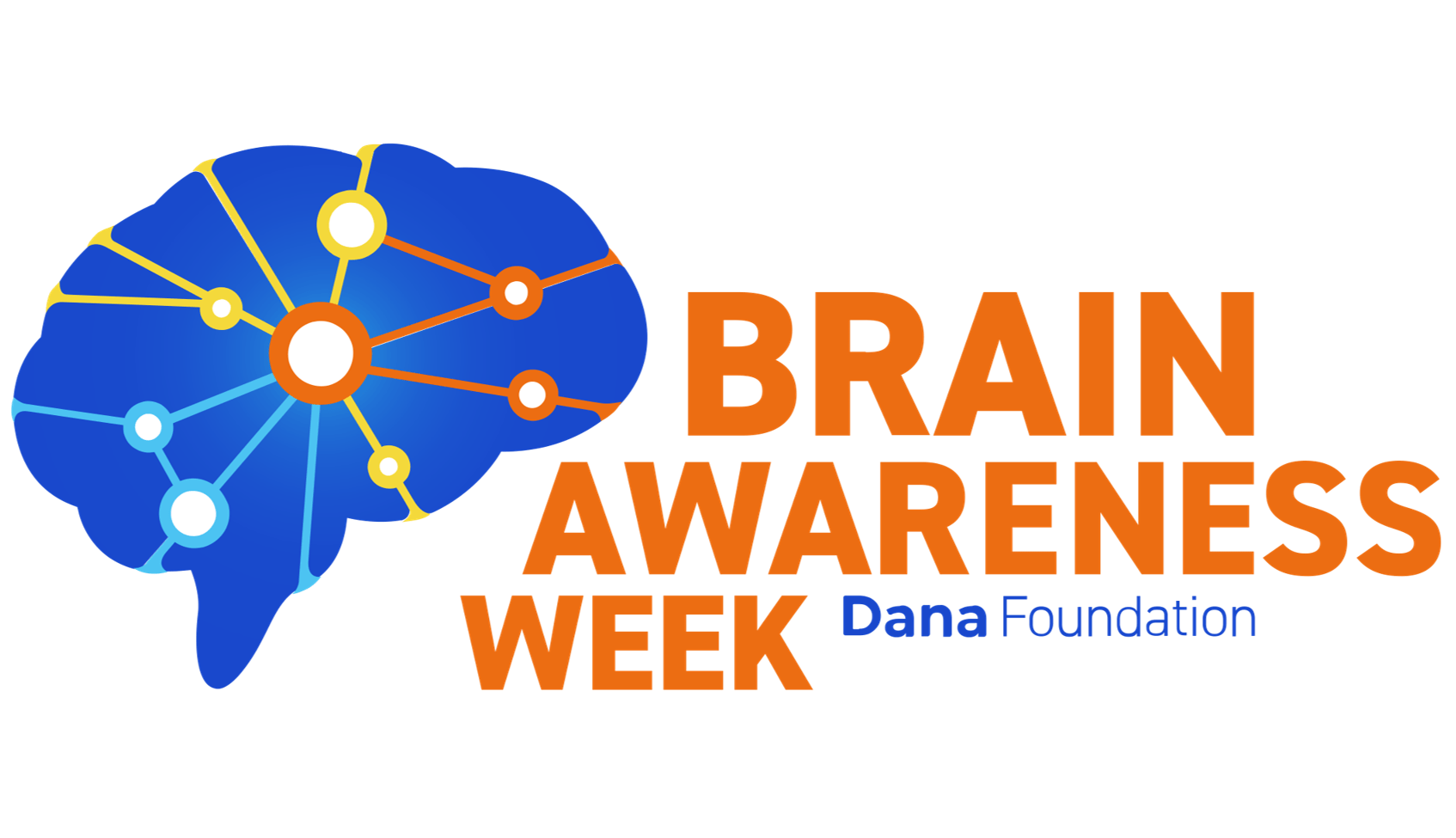
March 11, 2021
Next week (15th-21st of March) is the 23rd Brain Awareness Week (BAW), a global campaign to highlight advances in brain research. There are many events taking place online across Europe, including in France organized by the “Société des Neurosciences”, and in the UK and Ireland by the British Neuroscience Association.